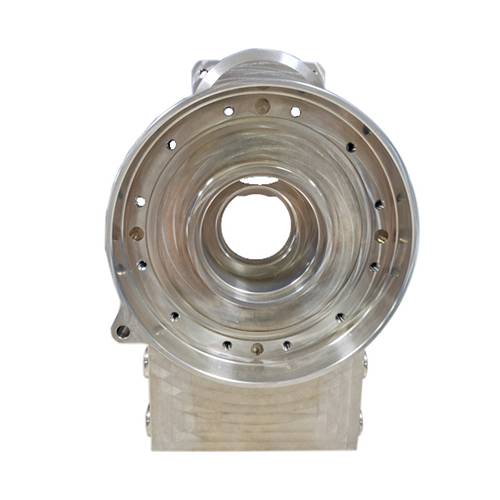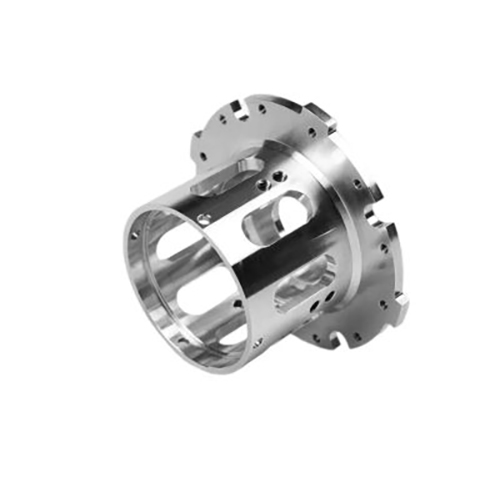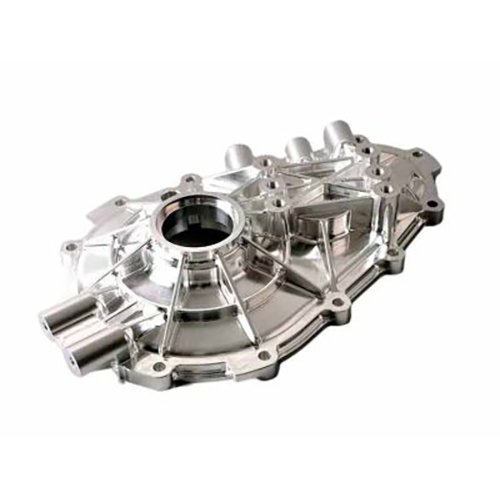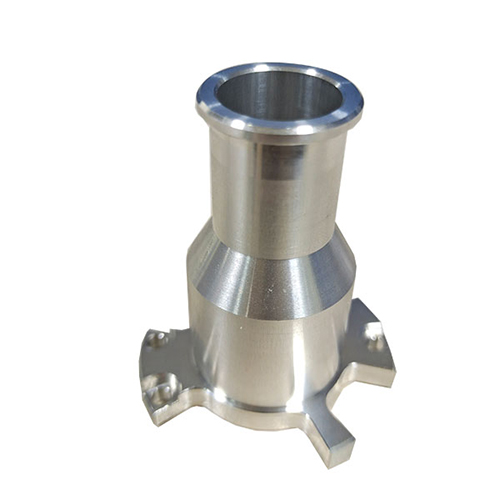Aluminum Sheet Metal Fabrication Service
Custom Aluminum Sheet Metal Fabrication Service
Order custom aluminum sheet metal parts with fast turnaround times and cost-effective pricing. We offer a variety of aluminum materials and finishes suitable for both prototype development and full production runs.
- ISO 9001 & ISO 13485 Certified Factory
- Advanced Equipment & Competitive Pricing
- Over 10 Years of Experience in Aluminum Sheet Metal Fabrication
- Tight Tolerances of ±0.005 mm
- Wide Range of Aluminum Material Options Available
- 24/7 Engineering Support

Our Aluminum Sheet Metal Fabrication Capabilities
Aluminum is a versatile and durable material that is widely used in sheet metal fabrication. It offers excellent corrosion resistance, making it a top choice for metalworking. With its outstanding strength-to-weight ratio and superior thermal conductivity, aluminum is commonly used across industries such as automotive, aerospace, medical devices, electronics, consumer goods, and packaging. After sheet metal fabrication, aluminum exhibits minimal risk of deformation or surface defects, and it is easy to finish, color, and polish, making it ideal for producing high-quality, precise components.
Price | $ |
Lead Time | <7 days |
Wall Thickness | 0.75 mm |
Tolerances | ±0.125mm(±0.005″) |
Max Part Size | 200x80x100cm(78.74”x31.5”x39.37”) |
Available Aluminum at NOBLE | Aluminum6061, 2024, 5052, 5083, 6061-T6, 6063, 6082, 7075, 7075-T6.ADC12(A380) |

Characteristics of Aluminum for Sheet Metal Fabrication
Aluminum is one of the most commonly used materials for sheet metal fabrication due to its excellent properties. Below are some key characteristics of aluminum that make it an ideal choice for metalworking:
Features | Info |
Subtypes | 6061-T6, 7075-T6, 7050, 2024, 5052, 6063, etc |
Process | Injection mold tooling, CNC machining, sheet metal fabrication |
Tolerance | With drawing: as low as +/- 0.005 mm No drawing: ISO 2768 medium |
Applications | Light & economic, used from prototyping to production |
Finishing Options | Alodine, Anodizing Types 2, 3, 3 + PTFE, ENP, Media Blasting, Nickel Plating, Powder Coating, Tumble Polishing. |
Pros and Cons of Aluminum for Sheet Metal Fabrication
Aluminum is a popular material for sheet metal fabrication due to its light weight, excellent machinability, and versatility. It is favored in industries requiring efficient, high-performance molds, especially for short to medium production runs.
Lightweight
Aluminum alloys are much lighter than steel, making them ideal for sheet metal parts that need to be easy to handle or contribute to lightweight product designs. This feature is particularly beneficial in industries like consumer electronics and automotive.
Excellent Machinability
Aluminum is easier to cut, bend, and form than many other metals, allowing for faster fabrication and high-precision parts. This results in lower production costs and shorter lead times for manufacturers.
Corrosion Resistance
Aluminum’s natural oxide layer provides excellent protection against corrosion, making it a good choice for parts exposed to humid environments or harsh conditions.
Good Strength-to-Weight Ratio
Aluminum alloys, such as 6061 or 7075, provide a good balance of strength and weight, making them suitable for structural components without adding excessive weight.
Versatility
Aluminum alloys come in a variety of grades and compositions, each offering specific properties (e.g., better strength, higher corrosion resistance, improved weldability), making them versatile for a wide range of applications, from automotive and aerospace to consumer electronics and architectural materials.
Recyclability
Aluminum is 100% recyclable without any loss of properties, which makes it an environmentally friendly material choice and contributes to cost savings in the long term.
Thermal Conductivity
Aluminum’s excellent thermal conductivity aids in heat dissipation, which is essential for components like heat sinks or electronic housings.
Cost-Effectiveness
Aluminum components, especially for low-to-medium volume production, are often more cost-effective than those made from other metals. They offer a good balance of performance and affordability.

Lower Strength Compared to Steel
While aluminum is sufficient for many applications, it is not as strong as steel, which can limit its use in heavy-load-bearing structures.
Softness and Scratch Sensitivity
Aluminum is softer than steel, making it more prone to scratches and dents, especially in high-traffic applications. Protective coatings can help mitigate this issue.
Thermal Expansion
Aluminum’s higher coefficient of thermal expansion can lead to dimensional changes under certain conditions, particularly when subjected to rapid temperature fluctuations.
Relatively Higher Cost for High-Grade Alloys
High-performance aluminum alloys (such as 7075) used for specialized applications can be more expensive than standard options.
Surface Damage
Aluminum parts may experience surface degradation from abrasion or chemically reactive environments. Protective finishes like anodizing or powder coating can enhance durability, but they may increase costs.
Potential for Galvanic Corrosion
When aluminum alloys are in contact with certain metals (e.g., copper, steel) in the presence of an electrolyte (such as saltwater), they may experience galvanic corrosion, which can compromise the integrity of the part unless protective coatings or specific alloys are used.

Types of Aluminum Sheet Metal Fabrication Materials
NONLE has worked with various aluminum subtypes for sheet metal fabrication, offering a wide selection of materials tailored to different mold requirements:

Aluminum 6061-T6
6061 aluminum is a versatile aluminum alloy known for its excellent machinability, weldability and corrosion resistance, and is widely used in aerospace, automotive, marine, construction, bicycle manufacturing, industrial machinery and sporting goods.
Yield Strength(MPa): 276
Elongation at Break(%): 17
Hardness(Brinell): 95
Density(G/m³): 2.7
Maximum Temp: 1080° F

Aluminum 7075-T6
Aluminum 7075-T6 is widely used in high-strength applications such as aerospace, military, automotive, and sporting goods, including aircraft structures, marine components, and performance-oriented parts, due to its superior strength-to-weight ratio and resistance to stress corrosion.
Yield Strength(MPa): 503
Elongation at Break(%): 11
Hardness(Brinell): 150
Density(G/m³): 2.8
Maximum Temp: 380° F

Aluminum 5052
This alloy is known for its excellent corrosion resistance, formability and weldability. It is widely used in the marine, automotive, construction and chemical industries. Its excellent formability makes it an ideal choice for CNC machining projects.
Yield Strength(MPa): 193
Elongation at Break(%): 12
Hardness(Brinell): 60
Density(G/m³): 2.68
Maximum Temp: 300° F

Aluminum 6063
6063 aluminum is ideal for CNC machining of architectural applications, window frames, door frames, furniture, and structural parts for irrigation pipes due to its excellent surface finish, good corrosion resistance, and its excellent ease of machining.
Yield Strength(MPa): 214
Elongation at Break(%): 12
Hardness(Brinell): 73
Density(G/m³): 2.7
Maximum Temp: 212° F

Aluminum 6061
6061 aluminum is widely used in aerospace, automotive, marine, construction and industrial applications due to its excellent strength, corrosion resistance and machinability. It is ideal for custom CNC machining of aircraft structures, vehicle components, marine equipment.
Yield Strength(MPa): 276
Elongation at Break(%): 17
Hardness(Brinell): 95
Density(G/m³): 2.7
Maximum Temp: 300° F

Aluminum 2024
Aluminum 2024 is widely used in aerospace, military and high-stress structural applications due to its high strength, fatigue resistance and ability to withstand extreme conditions. It is ideal for CNC machining of aircraft fuselages, wings and military vehicles.
Yield Strength(MPa): 325
Elongation at Break(%): 20
Hardness(Brinell): 120
Density(G/m³): 2.78
Maximum Temp: 935° F

Aluminum 5083
Aluminum 5083 is widely used in marine, transportation and industrial applications due to its excellent corrosion resistance (especially in saltwater environments) and high strength. It is ideal for shipbuilding, pressure vessels and CNC machining of car body parts.
Yield Strength(MPa): 275
Elongation at Break(%): 12
Hardness(Brinell): 75
Density(G/m³): 2.66
Maximum Temp: 775 °F

Aluminum 6082
Aluminum 6082 is widely used in structural applications such as bridges, cranes and industrial machinery due to its excellent strength, corrosion resistance and machinability. It is ideal for CNC machining of transportation equipment and connecting equipment parts.
Yield Strength(MPa): 260
Elongation at Break(%): 11
Hardness(Brinell): 95
Density(G/m³): 2.7
Maximum Temp: 330 °F

Aluminum 7075
7075 aluminum is widely used in high-performance applications, including aerospace, military, and sporting goods, due to its outstanding strength, light weight, and resistance to stress and fatigue. It is ideal for CNC machining of aircraft structures, defense equipment, and bicycle frame parts.
Yield Strength(MPa): 503
Elongation at Break(%): 11
Hardness(Brinell): 150
Density(G/m³): 2.81
Maximum Temp: 775 °F

Aluminum ADC12 (A380)
Aluminum ADC12 (A380) is widely used in the automotive, aerospace and manufacturing industries for its excellent fluidity, castability and corrosion resistance to produce die-cast components and is ideal for CNC machining of engine components, transmission housings, automotive wheels and industrial machinery parts.
Yield Strength(MPa): 160
Elongation at Break(%): 3.5
Hardness(Brinell): 80
Density(G/m³): 2.74
Maximum Temp: 572 °F
Surface Finishing Options for Sheet Metal Fabrication
Our superior surface finishes can make your custom sheet metal fabrication stand out even more. We offer a diverse range of finishing solutions to enhance the surface quality of your molds. These coatings also improve the mechanical strength and durability of your molds.

As Machined
Coming out of the machine after machining, our parts are cleaned of any sharp edges and burrs while retaining marks. Without any added material, the part had a surface roughness of 3.2 μm (126 μin).

Polishing
Working on metal and hard plastics, our polishing uses highly efficient machinery to get our parts between Ra 0.8~Ra0.1 for a cleaner surface.

Sand Blasting
Band blasting cleans the surface of any impurities and peels coating through the propelling of blast media streams over the parts.

Tumbling
Tumbling titanium smooths its surface, often resulting in a matte finish. It’s used for deburring or preparing titanium parts for further finishing or aesthetic enhancement.

Laser Carving
Helpful in brand recognition or parts organization, we use laser carving that applies various printing methods during full-scale production to quickly embed barcodes, lettering and logos on the parts.

Alodine
We use chromate conversion coating or alodine to protect titanium and other materials from corrosive elements, usually done before priming and painting parts.

Anodizing
To increase surface hardness and dissipate heat, we use anodizing techniques to enhance the look of parts and blend well for painting and priming.

Powder coating
We apply a thin layer of protective polymer with the corona discharge phenomenon to give our part a lasting finish that protects from impacts and prevents wearing down.

Brushing
Our brushing technique uses abrasive belts over the material to create diverse patterns that match the parts’ structure and color.
Custom Aluminum Sheet Metal Fabrication Display
Check out our over ten years of custom aluminum sheet metal parts, including precision aluminum prototypes and parts from our valued customers.
Applications of Aluminum Sheet Metal Fabrication
Aluminum sheet metal fabrication is widely utilized across various industries, including aerospace, automotive, electronics, medical devices, and robotics, for producing lightweight, high-precision components such as aircraft parts, enclosures, surgical instruments, and robotic components.

Automotive Parts
Aluminum sheet metal fabrication is heavily used in the automotive industry to produce lightweight, high-performance components. By utilizing aluminum, manufacturers can reduce the overall weight of vehicles, leading to improved fuel efficiency, better handling, and enhanced vehicle performance.

Aerospace Parts
In the aerospace sector, aluminum sheet metal fabrication is employed to manufacture lightweight and strong components, such as fittings, brackets, housings, and interior parts, which are critical for reducing the overall weight of aircraft. Aluminum's strength-to-weight ratio makes it perfect for aerospace applications where both durability and lightness are essential to ensure safe and efficient flight.

Medical Devices
Aluminum sheet metal fabrication plays a crucial role in the medical industry by producing lightweight, high-precision components like surgical instruments, diagnostic equipment housings, and implantable devices. Aluminum's biocompatibility, corrosion resistance, and ability to achieve tight tolerances make it an excellent choice for medical device manufacturers requiring high-quality, reliable components.

Robotics Parts
In the robotics industry, aluminum sheet metal fabrication is essential for producing precision components such as robotic frames, joints, gears, and connectors. Aluminum's lightweight and strong properties help create efficient and reliable robotic systems that can handle complex movements and dissipate heat effectively, enabling robots to perform specific functions with higher precision and longer operational lifespans.

Industrial Equipment
Aluminum sheet metal fabrication is widely used in the production of lightweight and durable components for industrial equipment. It allows for the creation of complex, high-precision parts that are vital to machinery performance and operational efficiency. Aluminum components contribute to equipment longevity and performance, offering flexibility in design and customization for various industrial applications.

New Energy
In the new energy sector, aluminum sheet metal fabrication supports the production of lightweight, precise components essential for the development of renewable energy technologies, such as solar panels, wind turbines, and battery housings.
If you are looking for a rapid prototyping manufacturer or a CNC machine shop to fabricate small, medium-volume, or mass-production products, NOBLE is an ideal choice.Our well-trained and experienced staff manufactures parts in line with drawings on modern CNC machines, with the highest accuracy and processing quality in all sizes.In addition, we provide professional design considerations for your CNC machining projects.
Want to get the most professional and fastest service for your CNC machining project? Upload your CAD files now and obtain a quote!








